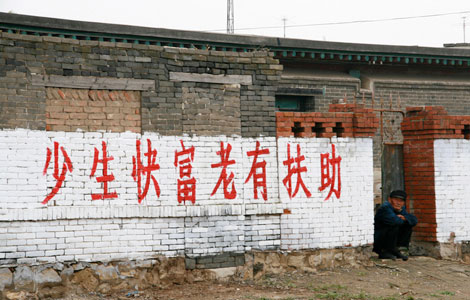

BEIJING - A Chinese official on Thursday set out the major tasks ahead for a taxation system which aspires to serve development and social equity.
China's Minister of Finance Lou Jiwei told Xinhua that the emphasis is on the role of taxation as a source of revenue, a redistributor of income and a tool of structural optimization and industrial upgrades.
"We will establish a tax system that lends itself to scientific development, social equity and market unity," Lou said.
His remarks come on the back of key policies on improvement to the taxation system released last week by the Communist Party of China.
A major task already underway is replacing turnover tax with value-added tax (VAT) levied on the difference between the cost of production and the price of a commodity on the market.
Following regional experiments since the beginning of 2012, changes to the VAT regime were rolled out over the whole country's transportation industry and six service sectors on August 1, reducing taxes on business by 94 billion yuan ($15.3 billion) in the first 10 months of the year.
A consumption-based VAT system, in line with industrial development rules, will soon eliminate double taxation, the minister said.
Reform of consumption tax will also be used to adjust consumption of products which use a lot of energy or cause pollution, as well as some high-end consumer goods.
The policy document called for legislation on a housing property tax, which will mean lowering taxes and charges for construction and transactions, while increasing taxes on ownership.
Trials of property tax have been running in Chongqing and Shanghai since January 2011 as local governments try to cool the property sector.







